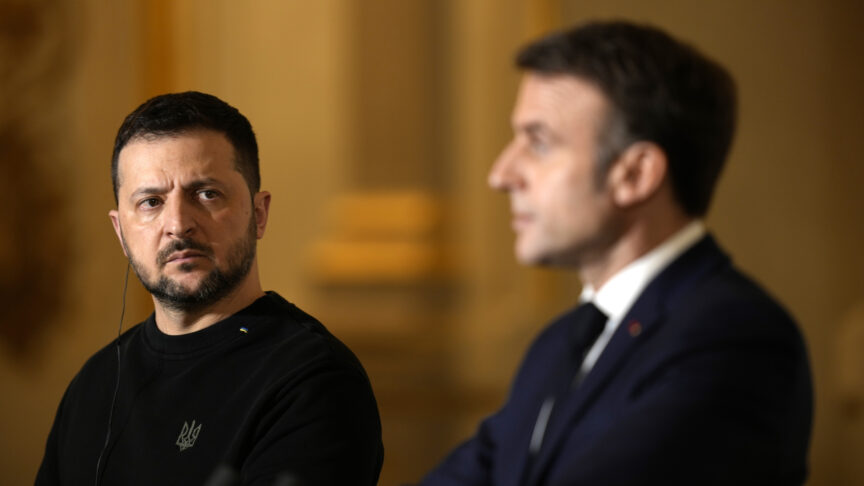Russia’s push into wider Europe
With a new US president, what are the prospects for a more united trans-Atlantic position on how to deal with a resurgent Russia and the ?neighbourhood? states in between?
 Dealing with Afghanistan and Pakistan may be the most pressing issue in the trans-Atlantic inbox, but agreeing a common position towards Russia may be one of the most difficult.
Dealing with Afghanistan and Pakistan may be the most pressing issue in the trans-Atlantic inbox, but agreeing a common position towards Russia may be one of the most difficult.
For Europe, the issue is slowly becoming priority number one, while the U.S will see this is as only one of a number of strategic relationships. Distance also matters more in relation to Russia. Washington does not have Europe’s energy relationship with Russia. The U.S. thinks the EU is addicted to Russian oil and gas; the EU thinks the U.S. is addicted to oil and gas.
Bush’s second term began with the Orange Revolution in Ukraine in 2004; but even on democracy promotion there have been tensions. Many in the EU think the US has double standards; many in the US thinks the EU is too prone to spineless realpolitik. Old Europe is inclined to accept that the West shares some of the blame for Russia’s ‘humiliation’ in the 1990s; the Eastern European states, with fresh memories of Russian domination, have been more eager to confront Moscow alongside the U.S. At the NATO summit in Bucharest in April, for example, Poland, the Czech Republic, and the Baltic States joined the U.S in pushing for Georgia and Ukraine to be given Membership Action Plans (MAP), a key step before full membership. But they were unable to sway Germany and France.
If anything, these different perspectives on Russia have only solidified after the ‘five day war’ in Georgia last August. France and Germany were pressing to resume business-as-usual as soon as Russia superficially complied with the troop withdrawal schedule in October; others felt that this would send completely the wrong signal to both Russia and the neighbourhood states. The ‘new Europe’ was joined by the likes of the UK in Sweden in arguing that the West should be building up its commitment to Russia’s nervous neighbours, not returning to a policy of ‘Russia first’. The Georgia war seems to have tilted the balance of argument within NATO, however, making MAP offers even less likely for Georgia and Ukraine.
But relations with Russia cannot be determined on the European continent alone. Broader perspectives are also of vital importance. Given Russia’s role in the Security Council, its increasingly strategic role in global energy supply and its influence over Iran’s nuclear programme, getting U.S and EU Russia policies aligned will be crucial.
One way to narrow the gap is for the EU to take on some of the soft security functions of NATO in wider Europe, especially in the area of police-and-justice reforms. NATO’s ongoing expansion in the region is highly controversial; Russia does not currently see the EU as a security threat. Russia’s great power complex means that it measures itself against the US, not the EU. NATO will continue to be able to do things in the neighbourhood that the EU cannot; but it would help if the US was slightly less visible in the region, and the EU slightly more so. This will mean the EU taking a tougher line in areas where it has previously been reluctant to tread, like the frozen conflicts and energy security. But instead of struggling over spheres of influence with Russia, the EU and the U.S. should be working together to uphold Western values against the very different political and business culture that underlies the Russian push into the neighbourhood.
The European Council on Foreign Relations does not take collective positions. ECFR publications only represent the views of their individual authors.


